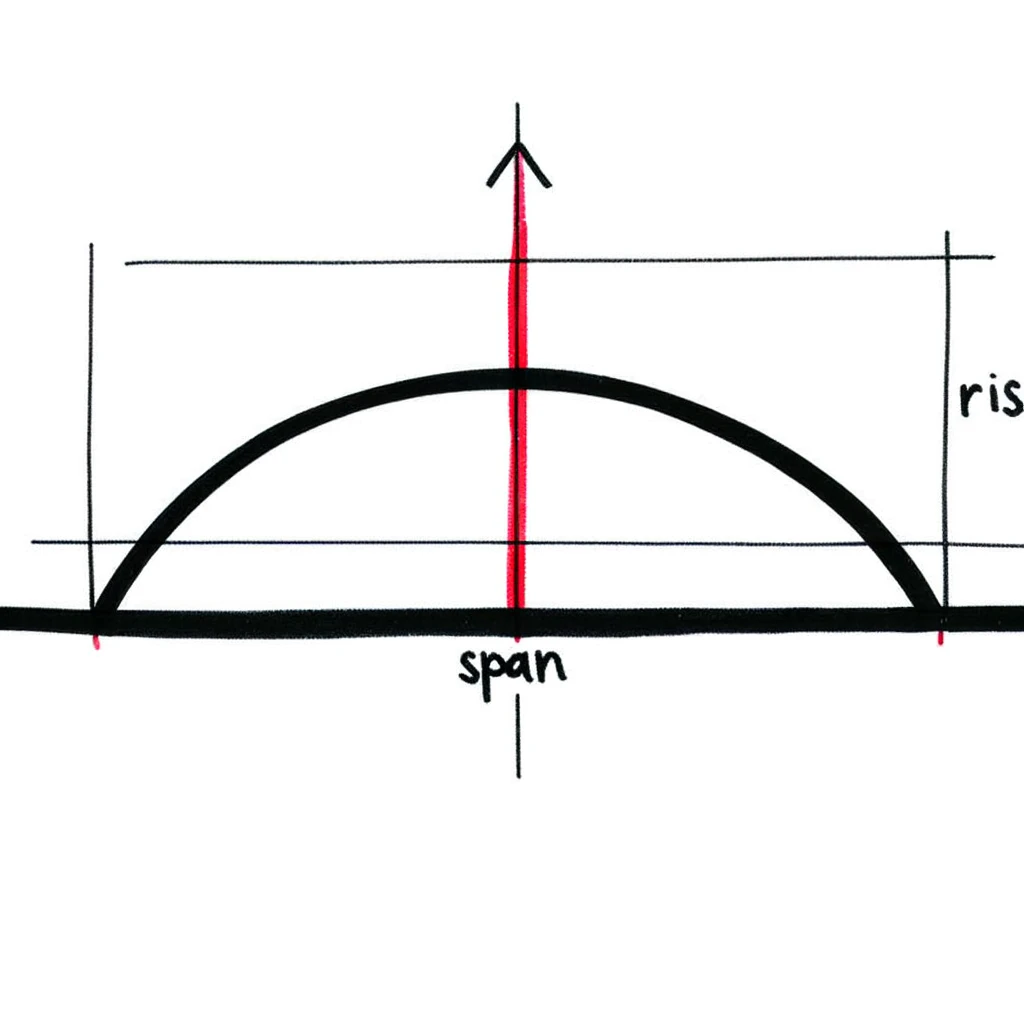Span
Definition
Span refers to the full extent of something from end to end, the range or stretch between two limits.
Parts of Speech
- Noun
- Verb
Pronunciation
American English
- IPA Pronunciation: /spæn/
- Respelling: SPAN (with "SPAN" rhyming with "can" and "man")
British English
- IPA Pronunciation: /spæn/
- Respelling: SPAN (similar to American English, with "SPAN" rhyming with "can" and "man")
In both dialects, "span" is pronounced with a short "a" sound, as in "can" or "man." The pronunciation of "span" is consistent between American and British English, reflecting the word's simple and direct phonetic structure.
Etymology
The term "span" comes from Old English spann, akin to Old High German spanna. The roots trace back to the Proto-Germanic spanno and Proto-Indo-European (s)pen-, meaning to draw, stretch, spin.
Derivatives
- Spanning
- Spanned
- Lifespan
Synonyms
Noun
- Stretch
- Reach
Verb
- Bridge
- Cover
Antonyms
Noun
- Break
- Gap
Verb
- Disconnect
- Divide
Usage
- Noun: Referring to a duration or length: "The span of the bridge is impressive."
- Verb: Referring to extending across: "The new bridge spans the river."
Related Terms
- Spanning tree
- Timespan
- Attention span
Detailed Definition
Noun
- Extent from End to End: A span refers to the full distance from one end of something to the other, such as a bridge, wing, etc.
- Example: "The span of the bridge was measured to be 500 meters."
- Duration: A period or stretch of time.
- Example: "He has a span of three months to complete the project."
- Range: The extent of an action or influence.
- Example: "The span of his knowledge is awe-inspiring."
Verb
- Extend Across: To stretch or extend across a space or distance.
- Example: "The bridge spans the wide river effortlessly."
- Cover a Range: To cover a range of items or topics.
- Example: "Her experience spans both marketing and sales, making her a valuable asset to the company."
span



🇨🇳 Mandarin (Simplified Chinese)
- 跨度 (kuàdù) [the full extent of something]
- IPA Pronunciation: /kʰwa˨˩˦ tu˨˩˦/
- Respelling in English: khwa-DU
- 期间 (qījiān) [period of time]
- IPA Pronunciation: /ʧi˥˥ t͡ɕjan˥˥/
- Respelling in English: CHEE-jyan
🇮🇳 Hindi
- विस्तार (vistār) [the full extent of something]
- IPA Pronunciation: /vɪsˈt̪aːr/
- Respelling in English: vis-TAAR
- समय की अवधि (samay kī avadhi) [period of time]
- IPA Pronunciation: /səˈmaɪ kiː əˈvəd̪hiː/
- Respelling in English: sa-MAY kee a-VA-dhee
🇪🇸 Spanish
- envergadura [the full extent of something]
- IPA Pronunciation: /en.ber.ɡaˈðu.ra/
- Respelling in English: en-ber-ga-DU-ra
- lapso [period of time]
- IPA Pronunciation: /ˈlap.so/
- Respelling in English: LAP-so
🇫🇷 French
- envergure [the full extent of something]
- IPA Pronunciation: /ɑ̃.vɛʁ.ɡyʁ/
- Respelling in English: an-VER-gyur
- durée [period of time]
- IPA Pronunciation: /dy.ʁe/
- Respelling in English: dyu-RAY
🇸🇦 Modern Standard Arabic
- مدى (madā) [the full extent of something]
- IPA Pronunciation: /maːˈdaː/
- Respelling in English: ma-DA
- فترة (fatrah) [period of time]
- IPA Pronunciation: /ˈfat.ra/
- Respelling in English: FAT-ra
🇧🇩 Bengali
- প্রসার (prasār) [the full extent of something]
- IPA Pronunciation: /proːˈʃar/
- Respelling in English: pro-SHAR
- সময় (somoy) [period of time]
- IPA Pronunciation: /ʃomoj/
- Respelling in English: SHO-moy
🇷🇺 Russian
- размах (razmakh) [the full extent of something]
- IPA Pronunciation: /rɐzˈmax/
- Respelling in English: raz-MAKH
- промежуток (promezhutok) [period of time]
- IPA Pronunciation: /prəmʲɪˈʐutək/
- Respelling in English: pro-ME-zhoo-tok
🇵🇹 Portuguese
- envergadura [the full extent of something]
- IPA Pronunciation: /ẽʋɨɾɡɐˈðuɾɐ/
- Respelling in English: en-ver-ga-DU-ra
- período [period of time]
- IPA Pronunciation: /peˈɾjodu/
- Respelling in English: peh-REE-o-du
🇮🇩 Indonesian
- rentang [the full extent of something]
- IPA Pronunciation: /ˈrɛn.taŋ/
- Respelling in English: REN-tang
- periode [period of time]
- IPA Pronunciation: /pɛˈrio.dɛ/
- Respelling in English: peh-REE-o-de
🇩🇪 German
- Spannweite [the full extent of something]
- IPA Pronunciation: /ˈʃpanˌvaɪtə/
- Respelling in English: SHPAN-vy-tuh
- Zeitspanne [period of time]
- IPA Pronunciation: /ˈtsaɪtˌʃpɑnə/
- Respelling in English: ZYT-shpan-uh
🇯🇵 Japanese
- スパン (supan) [the full extent of something]
- IPA Pronunciation: /supan/
- Respelling in English: SOO-pan
🇻🇳 Vietnamese
- phạm vi [the full extent of something]
- IPA Pronunciation: /fam viː˧˥/
- Respelling in English: fam VEE
🇰🇷 Korean
- 범위 (beomwi) [the full extent of something]
- IPA Pronunciation: /pʌmwi/
- Respelling in English: BUM-wee
🇹🇷 Turkish
- menzil [the full extent of something]
- IPA Pronunciation: /ˈmɛnzil/
- Respelling in English: MEN-zil
- süre [period of time]
- IPA Pronunciation: /syˈre/
- Respelling in English: soo-RAY
🇵🇰 Urdu
- مد (mudd) [the full extent of something]
- IPA Pronunciation: /mʊd/
- Respelling in English: mud
- وقت (vaqt) [period of time]
- IPA Pronunciation: /vəqt/
- Respelling in English: vaqt





